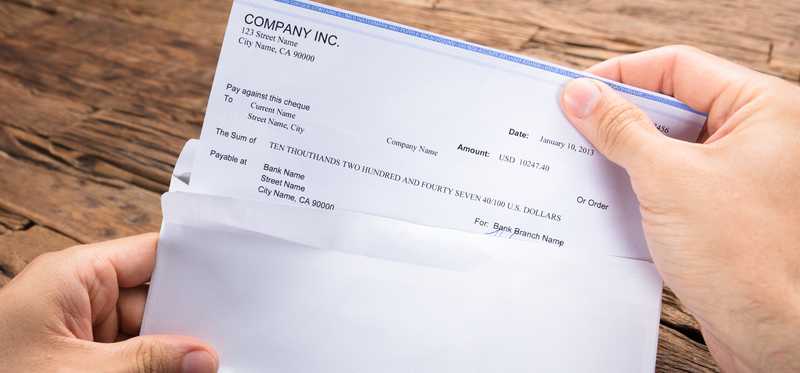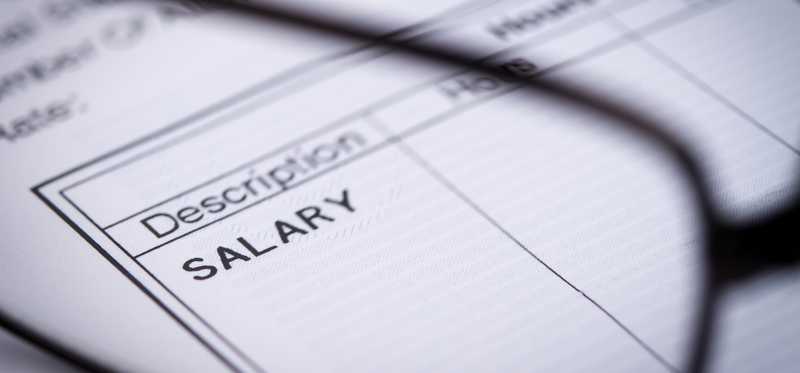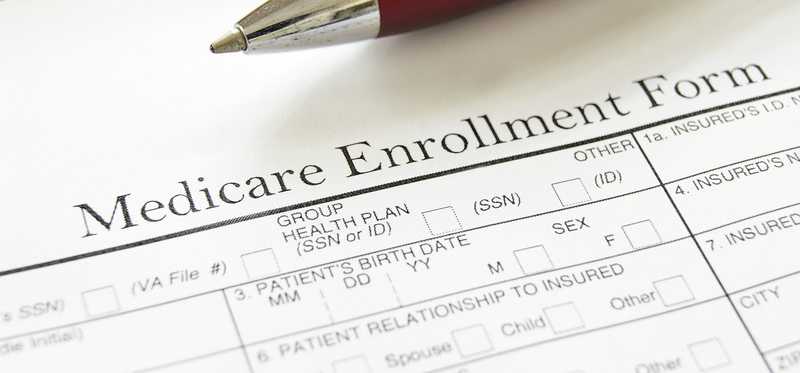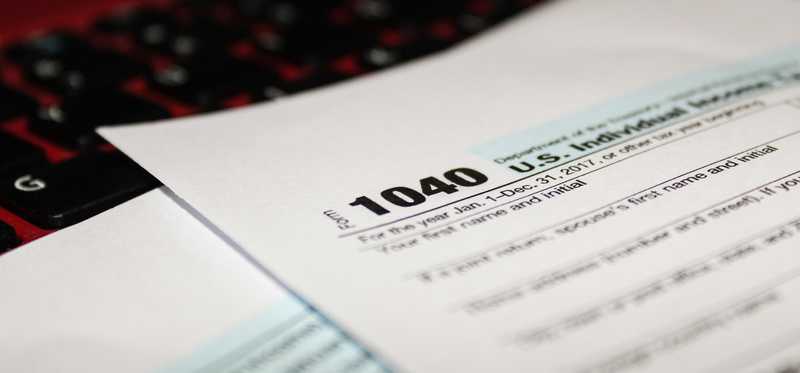30 Things You Need to Know About Social Security Before You Claim Benefits

30 Things You Need to Know About Social Security Before You Claim Benefits
Understanding how Social Security works is essential
Social Security will probably be an important source of income for you in retirement.
Unfortunately, it can be kind of confusing to figure out how the Social Security retirement program works and what you should do to maximize the benefits you receive.
You don't want to inadvertently reduce the checks you get to help fund your retirement, so be sure you know these 30 key facts prior to claiming your benefits.
Previous
Next

1. Social Security is designed to replace about 40% of pre-retirement income
Social Security isn't meant to be the sole source of retirement funds.
While most experts recommend you have enough money coming in to replace 70% to 80% of pre-retirement income, Social Security is designed to replace just 40% of what you were earning.
If you don't have money from other sources, you may want to wait to retire and save up some extra money.
ALSO READ: Planning to Live on Social Security? Consider Doing This
Previous
Next

2. Social Security benefits won't end if the trust fund runs out of money
Many people want to claim Social Security benefits ASAP because they're concerned the program will go bankrupt and benefits won't be there for them.
In reality, even if the Social Security trust fund runs out, current workers will still pay a lot into the system. The money that's collected will be enough to pay out about 77% of promised benefits.
So you don't need to worry that you won't get back your money after paying Social Security taxes for all these years.
Previous
Next

3. You can claim Social Security benefits as early as 62
You don't have to wait until you're in your mid-60s to claim benefits if you don't want to. The earliest age retirement benefits become available is 62.
This is not only the earliest age when you can start getting Social Security checks -- it's also the most popular.
That's likely because many people have health, family, or employment issues that force them to retire early -- and they need their benefits to do so.
Previous
Next

4. Your full retirement age is based on your birth year
Although you can start getting Social Security checks any time between age 62 and age 70, there's a designated age classified as your "full retirement age."
Traditionally, full retirement age was 65 for every retiree. But thanks to Social Security reform in the 1980, FRA is now between the ages of 65 and 70 depending on your birth year.
For anyone born between 1943-1954, FRA is 66. For those born in 1960 or later, it's 67. For those born in the middle years, it's between 66 and 67.
If you want to get your standard benefit amount, you have to claim at that age. Otherwise, benefits will be reduced or increased depending on when you file for them.
Previous
Next

5. Your benefits will be reduced if you claim them early
If you claim benefits prior to full retirement age, your benefits are reduced by five-ninths of 1% per month for each of the first 36 months.
If you retire more than 36 months in advance of FRA, benefits are reduced by an additional five-twelfths of 1% per month.
This reduction can substantially cut your monthly checks. If your FRA is 67 and you end up retiring at 62, your annual income from Social Security will be 30% smaller.
Previous
Next

6. You can increase your benefits by claiming them late
While claiming benefits early reduces your benefits, claiming late increases them.
In fact, for each month you wait after your full retirement age, benefits go up by two-thirds of 1%. This amounts to around an 8% increase per year.
Many financial experts recommend waiting as long as possible to claim Social Security benefits so you can max out these checks.
Previous
Next

7. You can only earn delayed retirement credits until age 70
Although you can increase your Social Security benefits by waiting to claim them, you can't just wait forever and keep earning higher checks.
You can only earn delayed retirement credits until age 70. After that, there's no further increase possible. So if your FRA is 67, the most you can get is a 24% increase if you wait as long as you can.
Previous
Next

8. If you claim early, the benefits reduction is permanent
As many as 38% of people think if they claim Social Security benefits early, their benefit will jump back up to its standard amount at full retirement age.
Unfortunately, once you've reduced your benefit by claiming early, it won't increase to the amount you'd have received if you waited. Your monthly benefit will always be smaller than it would have been.
Previous
Next

9. You can calculate how long it will take you to break even if you delay benefits
If you wait to claim your Social Security benefits to get larger checks, you'll miss out on months or years of income.
You should figure out how many months of higher checks it will take to break even for the income you didn't collect. You can do this by:
- Determining the benefit amount you'd receive if you claim at a younger age
- Figuring out how many months you're delaying benefits
- Multiplying this benefit amount by the number of months you're delaying
That will show you how much income you're missing out on by waiting.
Now divide this amount by the extra income you get each month because you waited in order to see how long you'd need to receive the higher benefit to break even.
ALSO READ: This Simple Math Helps You Decide When to Take Social Security
Previous
Next

10. Social Security is designed so it shouldn't matter what age you claim benefits
The reason your benefit checks vary based on the age you start receiving them is because the Social Security system is designed so you should theoretically receive the same lifetime benefits no matter what age you get your first check.
Of course, this is only the case if you live to your projected lifespan, as the system was designed using actuarial tables to estimate when beneficiaries would die.
If you outlive your projected lifespan, you'd receive more lifetime benefits by waiting to claim Social Security and getting larger checks.
If you pass away early, though, you'd fare better by starting your checks as soon as you can. Otherwise, you may not live long enough for higher checks to make up for years of benefits you gave up by waiting to claim.
You'll probably want to consider your family's health history and your personal health status when deciding how likely it is you'll live as long as the Social Security Administration estimated you would.
Previous
Next

11. Your Social Security benefits amount is based on your earning history
Your Social Security benefits equal a percentage of the average wages earned during your working years.
Wages over your career are adjusted for inflation to determine your Average Indexed Monthly Earnings (AIME). You'll get benefits equal to:
- 90% of AIME up to a certain income limit (the limits change each year)
- 32% of AIME between the first income limit and a second limit
- 32% of AIME above the second limit
Because a higher income leads to higher benefits, negotiating regular raises or picking up extra income at a side gig can both be great ways to boost the checks you get as a retiree.
Previous
Next

12. The Social Security benefits formula is progressive
Because Social Security benefits are based on your earnings record, higher earners will get larger monthly checks.
But their checks won't be that much larger than lower wage earners.
That's because the Social Security benefits formula is progressive. Lower earners get benefits equal to a larger percentage of their wages than higher earners do.
Previous
Next

13. Your Social Security benefits could be lower if you don't work at least 35 years
Your average wages used to determine your Social Security benefits are not calculated based on the number of years you actually work.
Instead, the Social Security Administration uses your inflation-adjusted wages from the 35 years when you earned the most.
If you don't work for a full 35 years, the SSA will still factor in 35 years of wages. Unfortunately, that means you'll have some years of $0 wages included, which will drag down your average and lower your benefits.
ALSO READ: Social Security Credits in 2020: Will You Qualify for Benefits?
Previous
Next

14. Working longer at a high-paying job can raise your benefits
If you work for exactly 35 years, your wages from every year you work will be included when the Social Security Administration determines the average wage used to calculate your benefits.
Sometimes, you don't earn very much early on in your career, but your earning power increases as you advance. If that's the case, it may pay to keep working so your earnings history spans more than 35 years.
Your later years of high earnings can replace your early years of low earnings, bringing up your average wages and raising your monthly benefit checks.
Previous
Next

15. High earners may not have all their income counted
Higher average wages mean higher Social Security benefits. But those who have very high incomes won't have all of their wages count in determining their average.
That's because the Social Security system caps the amount of wages you pay taxes on every year. Any income above that amount isn't included when your benefits are determined.
In 2020, the Social Security wage base limit is $137,700. So you'll get credit only for $137,700 in wages for that year -- even if you earn millions.
This cap is necessary to make sure Social Security benefits don't total tens of thousands of dollars per month for high earners.
ALSO READ: Social Security's Wage Base Gets Another Big Lift.
Previous
Next

16. It can be hard to undo a claim for Social Security benefits
Figuring out when to claim your Social Security benefits can be a challenge. But it's important to do the work to make sure you're ready because it can be really hard to undo a claim.
If you first started getting benefits less than a year ago, you can withdraw your claim -- but this will require you to pay back all the money received to date. Or if you've claimed benefits after full retirement age, you can voluntarily suspend your benefits to start earning delayed retirement credits.
Outside of these two situations, you can't just stop getting benefits once you've claimed them in order to reduce your checks in the future. You're stuck with the claiming strategy you chose.
Previous
Next

17. It's possible to claim benefits on a spouse's work record
In some cases, your spouse makes much more money than you do.
If that's the case, you may want to claim Social Security benefits not on your own work history but on your spouse's work record instead.
Your benefits could equal as much as 50% of your spouse's benefit at his or her full retirement age, depending when benefits are claimed.
Previous
Next

18. You may be able to claim spousal benefits even if you're divorced
Spousal benefits are not just available to current spouses. It's possible to claim them on an ex spouse's work record after a divorce -- as long as you were married for at least 10 years and you haven't remarried.
Previous
Next

19. You usually can't get spousal benefits until your spouse claims benefits
If you and your spouse are still married, you cannot claim Social Security benefits on your spouse's work history until his or her own benefits have been claimed.
If you're divorced, you don't have to wait until your ex claims though -- as long as you have been divorced for at least two years. But your ex does have to be at least 62.
ALSO READ: Here's Who Is Eligible for Social Security Spousal Benefits
Previous
Next

20. Survivor's benefits may be available to widows and widowers
If you were married and your spouse passed away, you can claim survivor's benefits based on his or her work history.
Survivor's benefits can be claimed as early as age 60 or age 50 if disabled. If you're caring for the deceased's child who is under 16, you can get these benefits at any age.
The amount of your survivor's benefits will depend whether your spouse had claimed benefits prior to his or her death and the age benefits were claimed.
Previous
Next

21. You usually can't receive multiple benefits at the same time
If you're eligible for your own benefits, as well as for spousal or survivor's benefits, you can't double dip and get both at the same time.
You can, however, get the highest amount of benefits available to you. So if survivor's benefits are higher than your own benefits, you can switch to receiving them once your spouse passes away.
Previous
Next

22. Deemed filing means you can't pick and choose which benefit you apply for
If you turned 62 before Jan. 2, 2016 you can submit a restricted application to file only for spousal benefits or only for your own benefits.
This means you could opt to claim spousal benefits while delaying claiming your own benefits to earn delayed retirement credits.
However, the rules changed for those born after that date. Now, when you request that benefits begin, you're deemed to be filing for both your own retirement benefits and any spousal benefits you're entitled to.
The change to the rules eliminated one technique married couples often used to maximize Social Security income.
Previous
Next

23. There's a maximum family benefit
In some cases, multiple members of the same family claim benefits on one person's work record. In these situations, the family maximum caps the total amount that can be collected.
The family maximum applies to disability, spousal, children, and survivor's benefits.
ALSO READ: Social Security's Family Maximum: What You Need to Know.
Previous
Next

24. Working while receiving Social Security could affect your benefits
For retirees who have reached full retirement age, Social Security benefits won't be affected by earning a paycheck. But for anyone who is under FRA and who claimed benefits, earning too much could result in a reduction of checks.
The amount you can earn depends on the limits set for the year by the SSA. It also depends on whether you'll hit your full retirement age some time during the year you're working.
If you do see your checks reduced because of income from a job, your benefit amount will be recalculated at FRA to account for the income you didn't get -- so future checks will be bigger.
Previous
Next

25. Social Security recipients get periodic cost of living adjustments
Social Security checks can go up if expenses rise. Cost of living adjustments (COLAs) are calculated based on the Consumer Price Index for Urban Wage Earners and Clerical Workers.
While benefits don't necessarily go up every year, COLAs help to ensure that buying power of retirees isn't totally eroded by inflation.
Previous
Next

26. Medicare premiums will probably be taken out of your Social Security checks
If you've turned 65 and are covered by Medicare Part B, premiums for this coverage are deducted directly from your Social Security check.
This means your check will be a little smaller than your standard benefit. It also means that if you get a cost of living increase but Medicare premiums go up, your Social Security raise will be smaller than expected.
ALSO READ: Why You're Probably Never Getting A Real Raise from Social Security
Previous
Next

27. Hold harmless provisions prevent cuts to your checks due to rising Medicare premiums
Sometimes, Medicare premiums go up more than your Social Security checks increase.
If this happens, you won't see a cut to your Social Security benefits thanks to hold harmless provisions. Instead, you'll only be charged a portion of the additional premiums equal to the Social Security COLA.
When you get a larger Social Security cost of living increase in the future, though, you'll jump back up to paying the full amount of premiums due.
Previous
Next

28. Claiming disability benefits could allow you to delay retirement benefits
Many people claim Social Security retirement benefits because health issues prevent them from working in their early 60s.
If you can't work for medical reasons, consider claiming Social Security Disability instead.
This will allow you to avoid reducing your retirement benefits by filing early. And a disability freeze will be put into place so years of low earnings caused by disability won't drag down your Social Security benefit amount.
ALSO READ: Social Security Disability: Everything You Need to Know.
Previous
Next

29. Some of your benefits may be taxed
Social Security benefits become taxable once your income hits a certain threshold. Income, in this case, includes one-half of your Social Security benefits plus other taxable income and some nontaxable money including bond interest.
If you file as married and have income above $32,000, up to 50% of your benefits could be taxable. For other filing statuses, up to 50% of your benefits could be taxed once you have $25,000 in income.
And married filers could see up to 85% of their benefits taxed once their income hits $44,000 while other filers will be subject to this tax with incomes of $34,000 and up.
Previous
Next

30. You can see your estimated benefits online
If you want to find out what your benefits would be based on the age when you file, you can create an online My Social Security account.
After creating your account, you'll see your estimated benefits at age 62, at your full retirement age, and at age 70.
These are just estimates, though, and they're based on the assumption you'll stay at your current earning level for the rest of your career.
The closer you are to retirement, the more accurate the estimate will be.
Previous
Next

Make a smart choice about claiming your benefits
Now you know the key facts that will allow you to make an informed choice about when to claim Social Security.
You can make sure you claim at the right age for you, and you have a clear idea of what role Social Security will play in funding your retirement.
The Motley Fool has a disclosure policy.
Previous
Next
Invest Smarter with The Motley Fool
Join Over Half a Million Premium Members Receiving…
- New Stock Picks Each Month
- Detailed Analysis of Companies
- Model Portfolios
- Live Streaming During Market Hours
- And Much More
READ MORE
HOW THE MOTLEY FOOL CAN HELP YOU
-
Premium Investing Guidance
Market beating stocks from our award-winning service
-
The Daily Upside Newsletter
Investment news and high-quality insights delivered straight to your inbox
-
Get Started Investing
You can do it. Successful investing in just a few steps
-
Win at Retirement
Secrets and strategies for the post-work life you want.
-
Find a Broker
Find the right brokerage account for you.
-
Listen to our Podcasts
Hear our experts take on stocks, the market, and how to invest.
Premium Investing Services
Invest better with The Motley Fool. Get stock recommendations, portfolio guidance, and more from The Motley Fool's premium services.